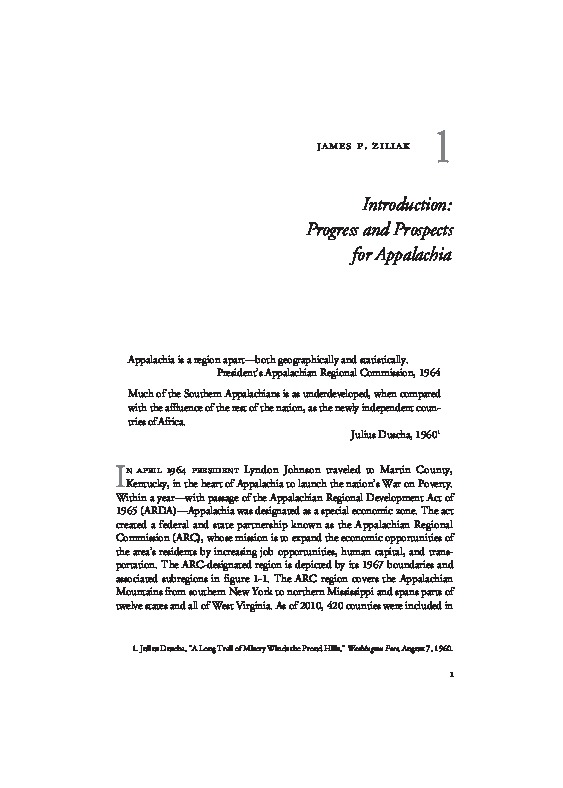In 1964, President Lyndon Johnson went to Kentucky’s Martin County to declare war on poverty. The following year he signed the Appalachian Regional Development Act, creating a state-federal partnership to improve the region’s economic prospects through better job opportunities, greater human capital, and enhanced transportation. As the focal point of domestic antipoverty efforts, Appalachia took on special symbolic as well as economic importance. Nearly half a century later, what are the results? Appalachian Legacy provides the answers. Led by James P. Ziliak, prominent economists and demographers map out the region’s current status. They explore important questions such as: How has Appalachia fared since the signing of ARDA in 1965, and how does it now compare to the nation as a whole in key categories such as education, employment, and health. Was ARDA an effective place-based policy for ameliorating hardship in a troubled region, or is Appalachia still mired in a poverty trap? And what lessons can we draw from the Appalachian experience? In addition to providing important research to help analysts, policymakers, scholars, and regional experts discern what works in fighting poverty, Appalachian Legacy is an important contribution to the economic history of the eastern United States. (Published at Brookings Institution Press, 2012)
Research
PovertyPDF Thumbnail

Author(s)
James P. Ziliak (editor)Image
